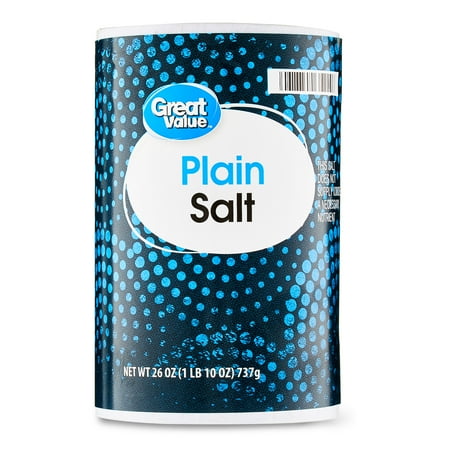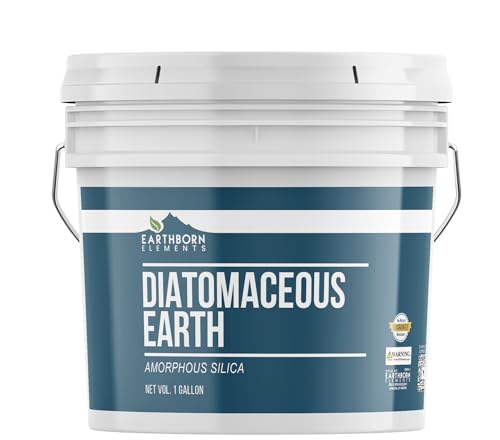What kills maggots? 8 simple solutions to wipe out maggots, according to seasoned pest control pros
Expert-approved tips for dealing with maggots, with powerful, permanent results

Chiana Dickson

- 1. Boiling water
- 2. Vinegar
- 3. Salt
- 4. Lime powder
- 5. Freezing
- 6. Diatomaceous earth
- Chemical approaches to killing maggots
- Can dish soap kill maggots?
- Can I vacuum maggots?
- 1. Boiling water
- 2. Vinegar
- 3. Salt
- 4. Lime powder
- 5. Freezing
- 6. Diatomaceous earth
- Chemical approaches to killing maggots
- Can dish soap kill maggots?
- Can I vacuum maggots?
- 1. Boiling water
- 2. Vinegar
- 3. Salt
- 4. Lime powder
- 5. Freezing
- 6. Diatomaceous earth
- Chemical approaches to killing maggots
- Can dish soap kill maggots?
- Can I vacuum maggots?
If you have found maggots in or around your home, it's vital to learn how to kill them instantly to protect your home from these pests, and a growing infestation.
While disgusting, pest experts assure us that maggots are fortunately easy to kill. You can often use natural remedies with items you already have in your home, too, so you won't have to resort to harsher pesticides if you don't want to.
Here, our pest control pros share the six most effective natural methods for killing maggots (and two chemical means for serious cases) to help you get rid of maggots quickly.
What kills maggots?
Lorne Hanewich, corporate trainer at Clark's Termite & Pest Control says, 'Maggots are the larval stage of flies, primarily species like the housefly, blowfly, and fruit fly. Each of these species has its unique preferences for egg-laying locations. For example, blow flies are often attracted to decaying meat, while fruit flies prefer overripe fruits or fermenting organic material.'
It is vital you know how to identify indoor pests and why there are maggots in your house in order to deal with maggots correctly. Lorne adds, 'During this stage, maggots feed intensively on organic material, preparing to develop into adult flies. Typically, maggots are small, white, or cream-colored with soft bodies, move by crawling or wriggling, and worm-like in appearance. Maggots play an essential role in nature, breaking down decaying matter.'
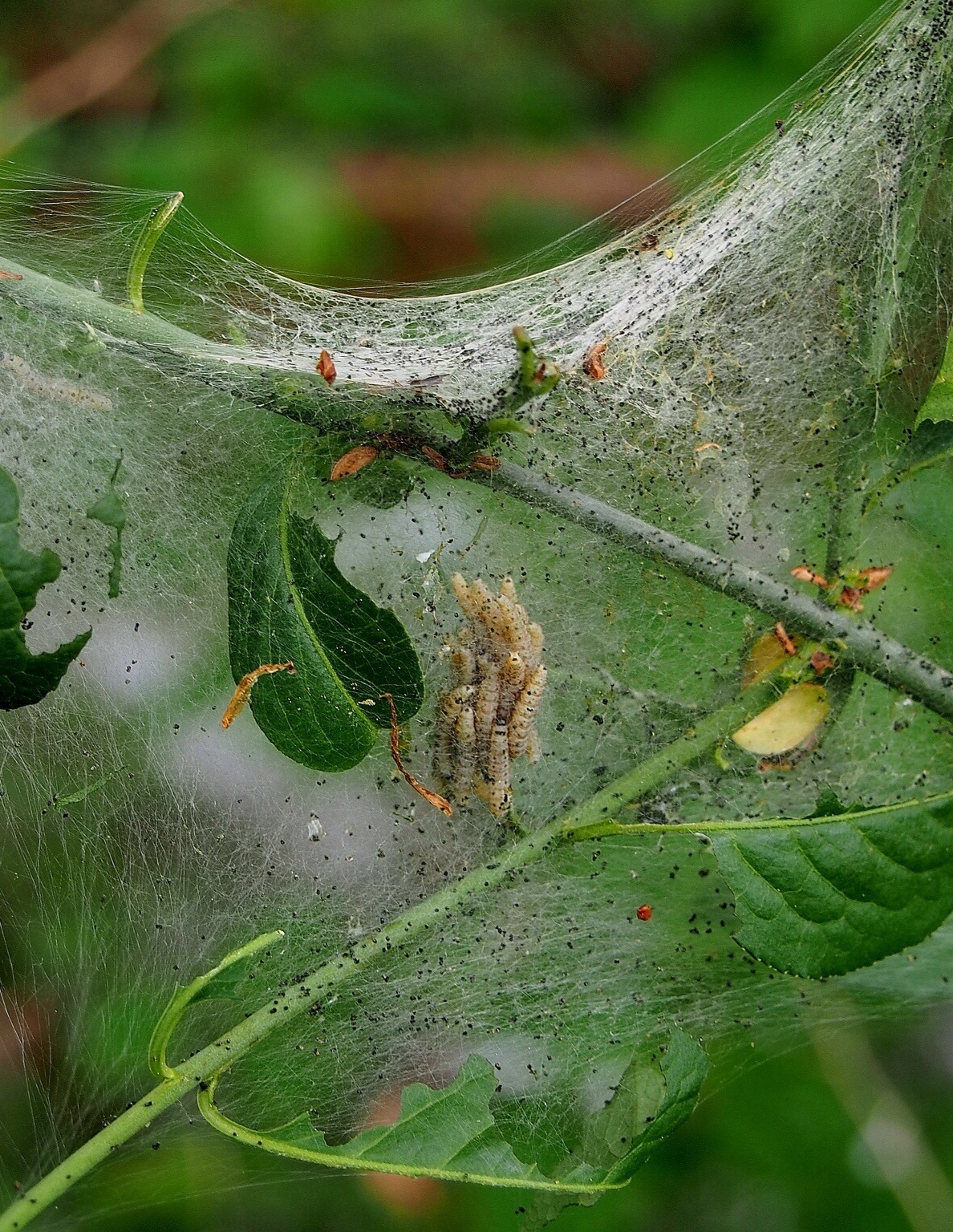
Lorne says, 'If you notice small, white, or pale larvae wriggling around, especially near garbage bins, food waste areas, or pet areas, you likely have a maggot infestation. An unusual increase in adult flies indoors is also a sign, as these flies might have laid eggs that are now hatching. A strong, unpleasant smell often accompanies maggot infestations, especially near decaying material.'
Here is a list of natural products that you most likely already have in your home that are really effective at killing maggots.
Design expertise in your inbox – from inspiring decorating ideas and beautiful celebrity homes to practical gardening advice and shopping round-ups.
1. Boiling water
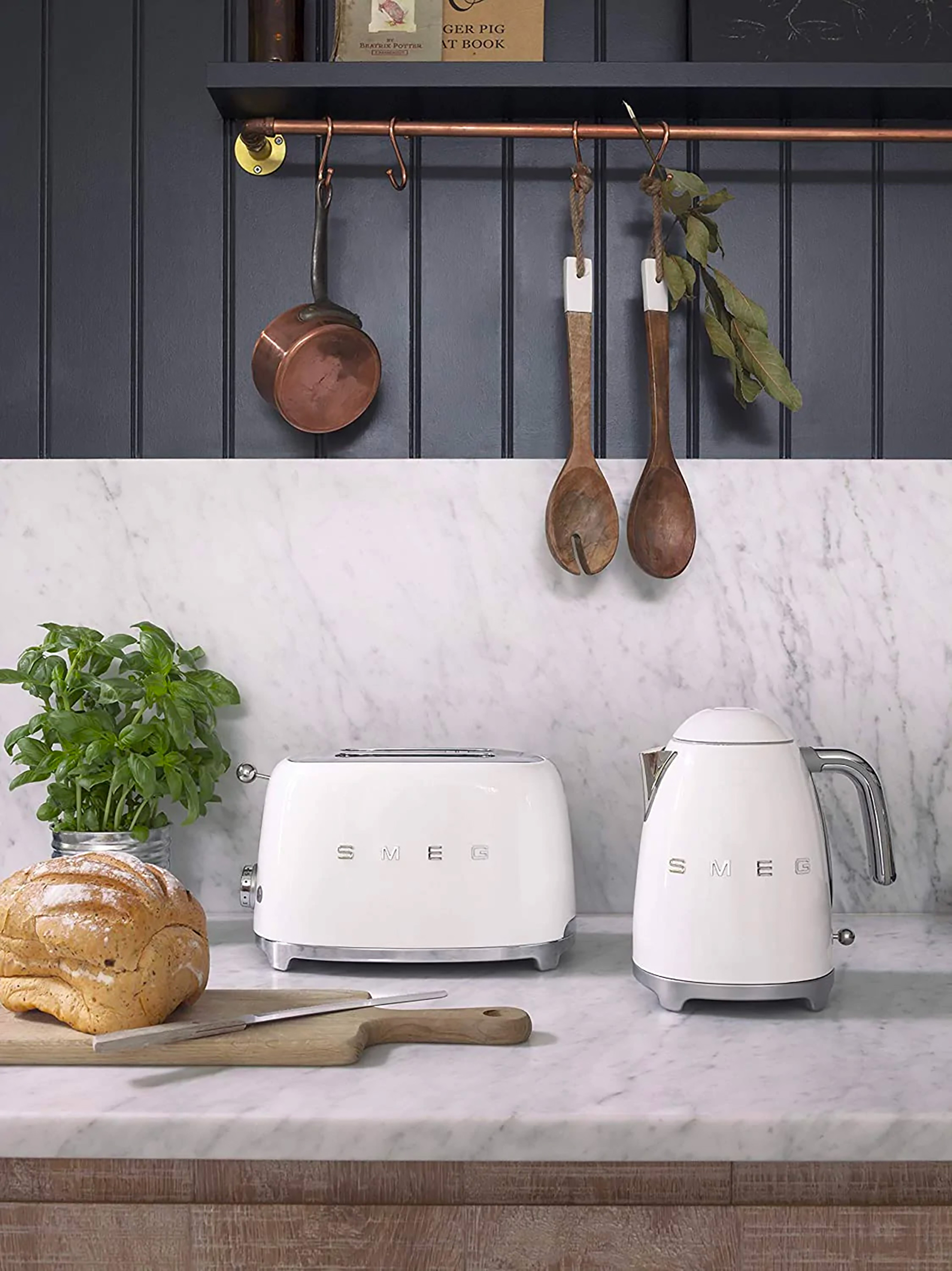
As simple as it sounds, boiling water is the most impactful way to kill maggots quickly.
Pest control expert Nicholas Martin begins, 'Maggots are actually highly vulnerable to many things. They consist mostly of protein, which makes them most vulnerable to boiling water.' He explains that boiling water causes protein coagulation and kills maggots instantly – and naturally. ‘Don’t forget that maggots can live in cool and warm water, so it must be boiling to kill them,’ he says.
And Martin isn’t the only person who practices this technique. Pest expert Ray Brosnan similarly recommends pouring boiling water over the area where the maggots are gathering to remove them quickly.
Ray says, ‘All you need to do is rinse away the remains afterward; a sprinkling of baking soda (such as Arm & Hammer Baking Soda from Walmart) over the area is recommended after the scalding to eliminate any bad smells that may linger.'
After cleaning with baking soda, all residue of these maggots should disappear completely. Use an anti-bacterial cleaner, such as Clorox Bleach-Free Disinfecting Wipes at Walmart, to wipe the surfaces they were on for added peace of mind.
2. Vinegar
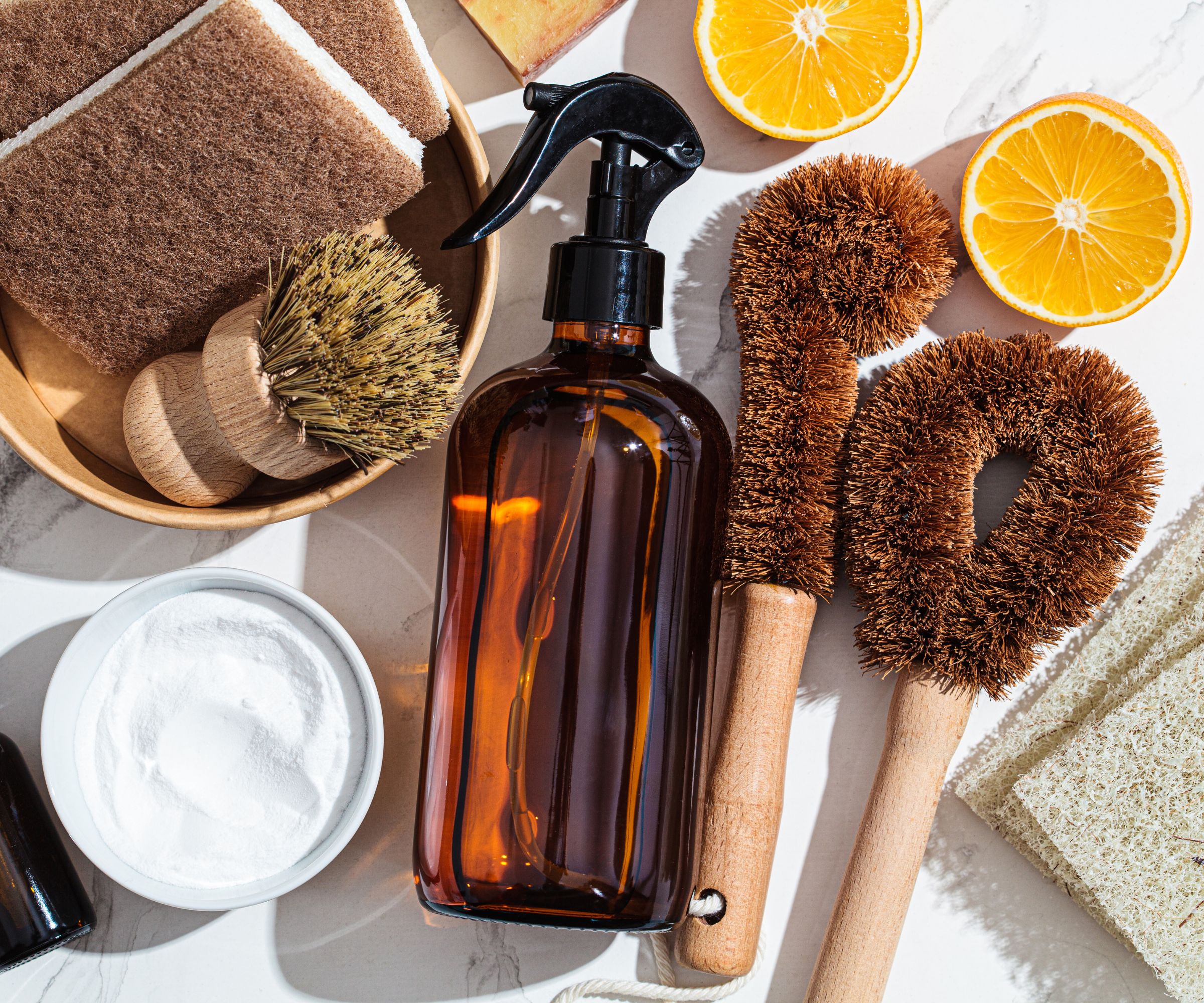
There are so many things you can clean with vinegar around your home, and you can use it to kill mold and maggots too – instantly – but only when mixed with boiling water.
Matthew Wilson, pest solutions expert and CEO of Handy Gardeners says, 'Commonly, vinegar is suggested as a maggot killer but it rarely works alone; however, when mixed with boiling water its efficacy increases significantly. To do this you will need one-part vinegar mixed with two parts boiling water. Pour directly onto them or into places like garbage cans, under sinks, or outdoor containers where they are found most often, alongside other affected areas.'
We recommend the number one bestselling 365 by Whole Foods Market Organic White Distilled Vinegar available at Amazon for this, as it is diluted to a 5% acidity, strong enough to kill maggots on contact.
Matthew continues, 'Once boiled, the water kills maggots on contact while vinegar helps to stabilize the environment by making it less hospitable for any future infestations. The mixture kills instantly and also breaks down smells that attract flies, thus preventing re-infestation.'
3. Salt
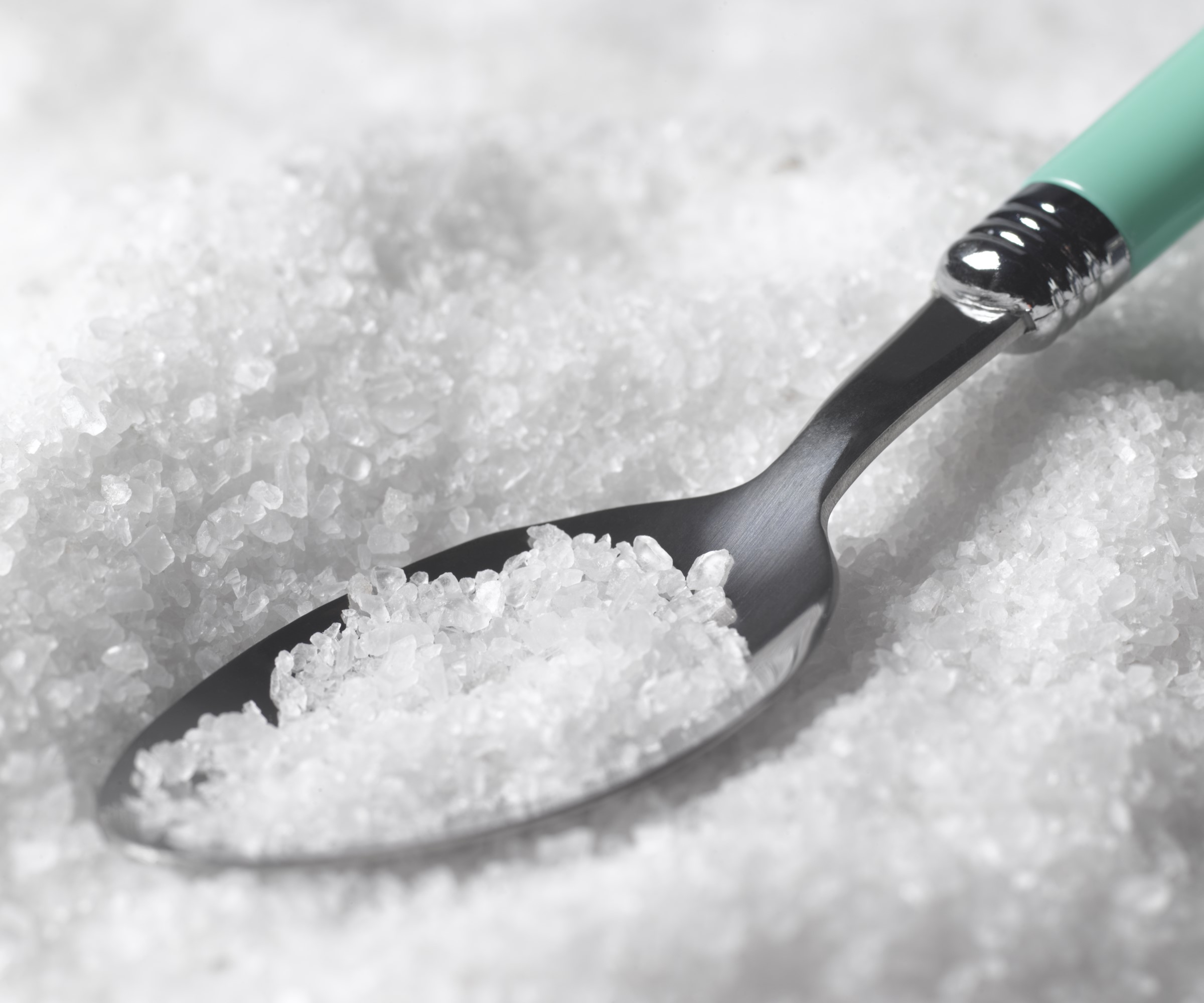
Cleaning with salt is another tried and tested solution for killing maggots, but it is important to note that it is not as instant as boiling water.
Jason Napolski, pest control expert and owner of A-Tex Pest says, 'Salt is a natural dehydrator that can kill maggots. Pour a generous amount over the maggots and the area they’re in; the salt will dehydrate them and kill them over time. '
Daniel Anderson, pest control and cleaning expert, and CEO of Gorubbishgo adds, 'You can mix one cupful of salt with one gallon of tap water and flush down places such as drains or trash bins where they might have infested. This doesn't just kill them, it also prevents them from hatching new eggs again.'
As salt is an affordable commodity, Anderson recommends using as much as you can to increase efficacy. 'Use lots of salts especially if dealing with heavy infestation because it is cheap,' he says.
All prices correct at time of publication.
4. Lime powder
For an equally organic solution, Anderson recommends using another pantry staple, lime powder, to tackle maggot infestations.
He says, 'Lime powder, also known as calcium hydroxide, can act as a good maggot killer due to its ability to dehydrate them; all one needs do is sprinkle lime over affected areas then leave it like that for some time.'
'As moisture gets absorbed by the lime, it becomes unsuitable for survival by larvae hence causing their death eventually – very useful, especially in open spaces like gardens where these organisms might be found living within the soil or under mulch materials.'
Anderson recommends the Hi-Yield Horticultural Hydrated Lime available at Walmart. 'It works well and doesn't cost too much,' he says. 'Other gardening stores may have similar products available.'
5. Freezing

Matthew Wilson, pest solutions expert says, 'Freezing ranks among the least known yet highly effective methods for killing maggots, especially during small scale outbreaks or objects infested by these larvae like garbage bags, small receptacles, and even organic waste bins.
'This is because once exposed to below zero degrees Celsius temperature range, which could last up until 24 hours. Plus, every single worm present there dies completely without exception since they cannot survive such freezing conditions. This is mostly recommended when boiling may be inappropriate, as it's around food materials, but is still very safe due to the lack of chemicals involved.'
Brett Bennett, director of operations at PURCOR Pest Solutions also recommends this method.
He adds, 'If you have maggots in your trash, then I'd recommend bagging it tight and putting it in a freezer. A chest freezer is ideal for this, but if you need to, bagging smaller portions of trash and putting it in your regular freezer can work as well.
'This might seem gross, but it's really the best way to kill maggots instead of risking them infesting your outdoor garbage receptacles. Freezing can also work for other things around the house maggots might be feeding on.'
Make sure you are careful to organize your chest freezer, to keep maggots and any dirty bags away from food as much as possible. We also recommend double-bagging your trash bag to ensure the infestation is kept secure, using sturdy sacks such as the Hefty Strong Large Trash Bags available at Amazon.
6. Diatomaceous earth
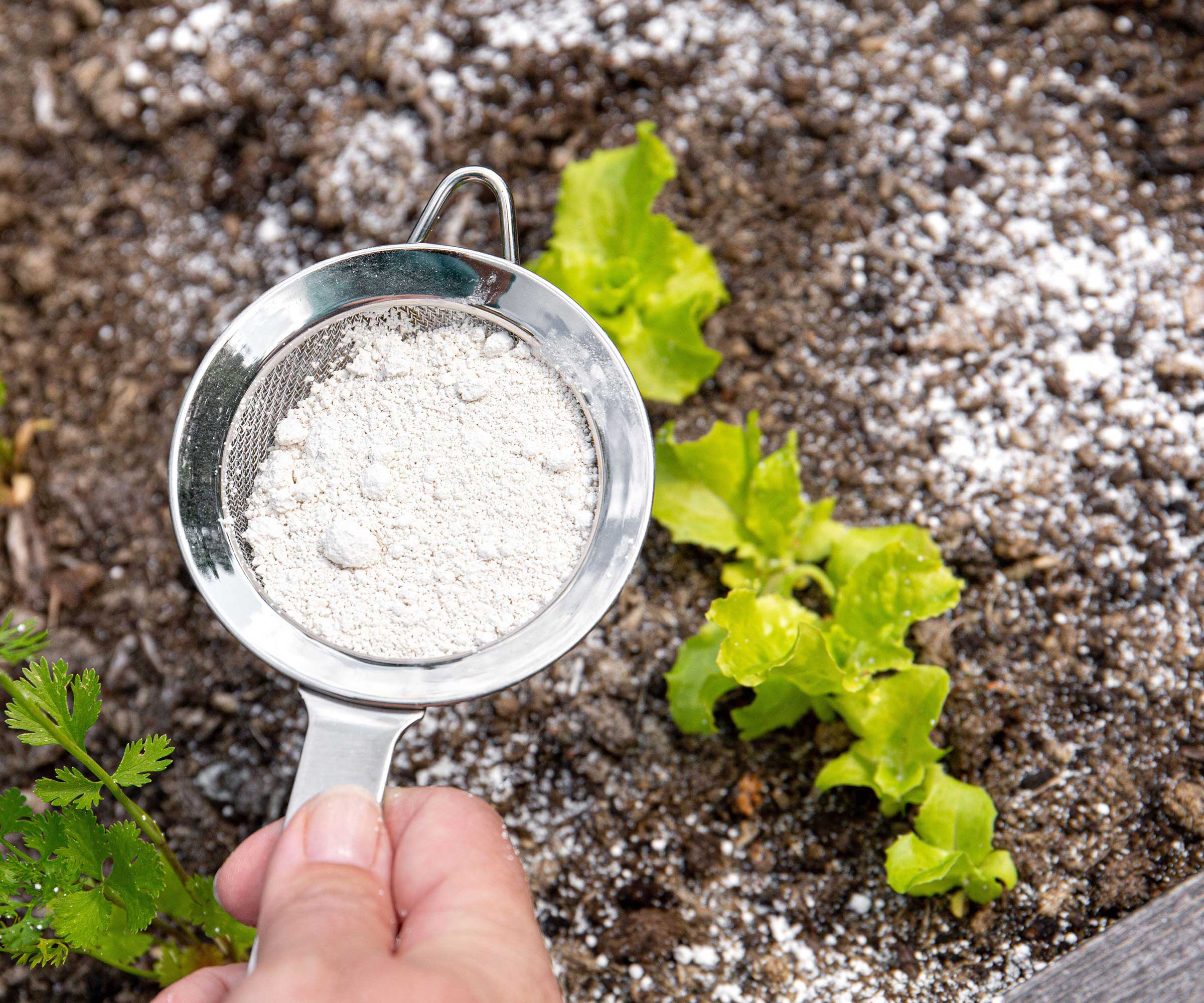
You can use diatomaceous earth as a natural alternative to killing maggots and other pests.
Jeremy Yamaguchi, CEO of Lawn Love shares, 'I have found diatomaceous earth (DE) to be one of the most effective ingredients for getting rid of maggots, whether they are inside your house or outside on your property somewhere.
'DE is a powder made of the ground-up fossils of tiny aquatic creatures. Some products contain a certain percentage of other minerals or substances, but I recommend using the Harris Food Grade Diatomaceous Earth (available at Walmart) because it is 100% pure DE.'
Diatomaceous earth lacks toxicity properties, so it's safe to use anywhere throughout the home assures Matthew Wilson, pest solutions expert.
Matthew adds, 'This substance made from ancient algae works by absorbing fats contained on their outer skin thus leading them into dehydration then death. It takes approximately 24-48 hours depending on how many are present before all die off due to this action taking place over every individual’s body surface area exposed externally to the surrounding environment.
'Food grade DE is safe to use around pets and children, so one can comfortably apply it even in places where kids might come across it, like carpet seams or outdoor bins used for storing waste materials. To achieve better outcomes leave DE undisturbed for some days prior to cleaning up.'
It is however advisable to wear a mask over your nose and mouth to prevent inhalation of the tiny particles as you distribute it.
Chemical approaches to killing maggots
1. Bleach and water mixture
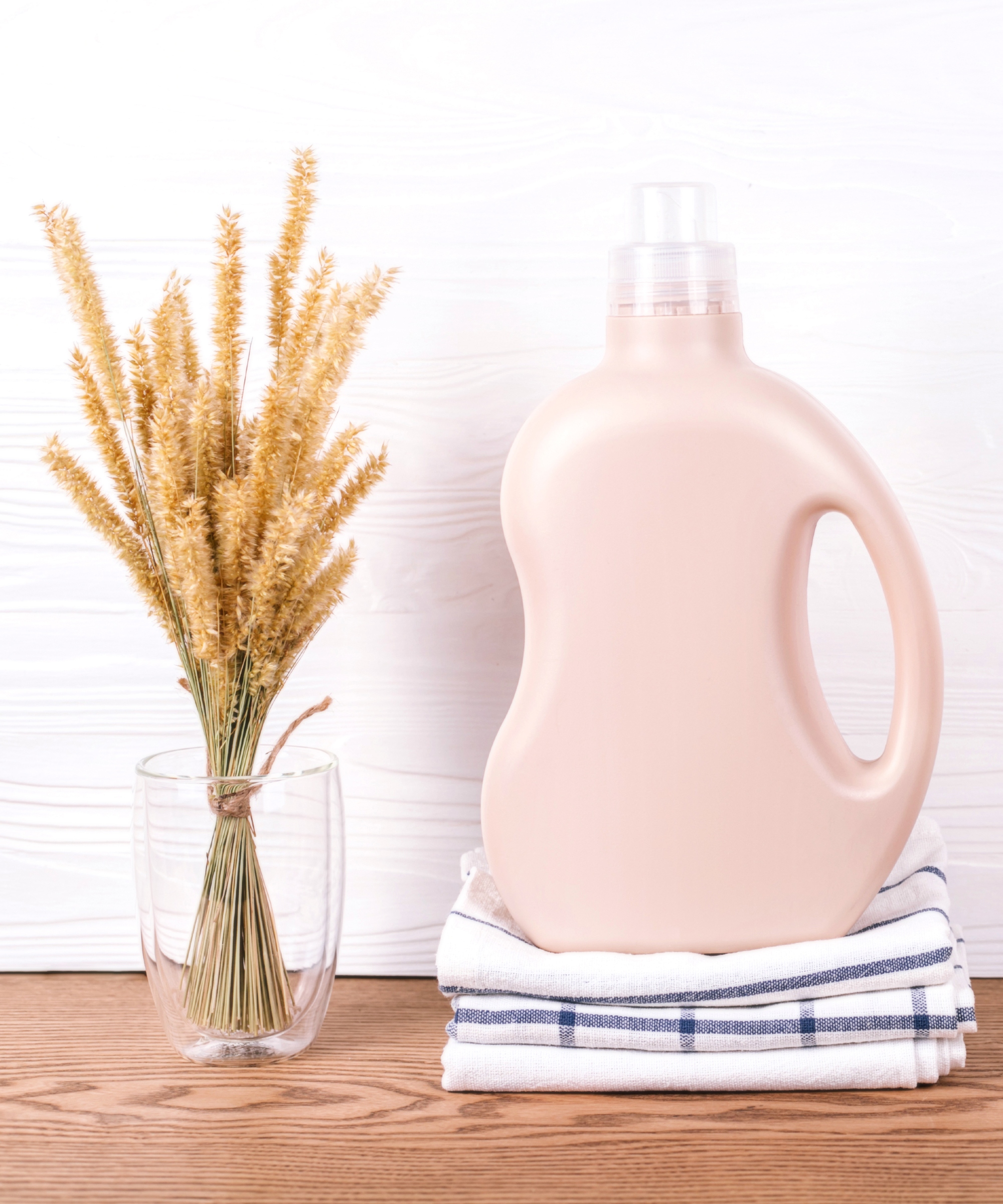
You've probably heard of using bleach to kill mold, but it can also be used to kill maggots. This method is not as natural as the others, but pest control expert, Nicholas Martin, explains that it’s equally as powerful.
He suggests, ‘You can mix bleach 50/50 with water and pour it onto maggots to kill them quickly,’ he says. ‘If the maggots are in your trash can, you can also close it after pouring bleach inside to kill those maggots that are not covered with the liquid with toxic bleach fumes.’
You can use any traditional cleaning bleach– we recommend the Great-Value Low Splash Bleach available at Walmart, as it's popular with shoppers, and kills 99.9% of germs.
We recommend using this method outside as much as possible or opening windows and doors to ventilate the area to protect your airways from irritation.
2. Use insecticides
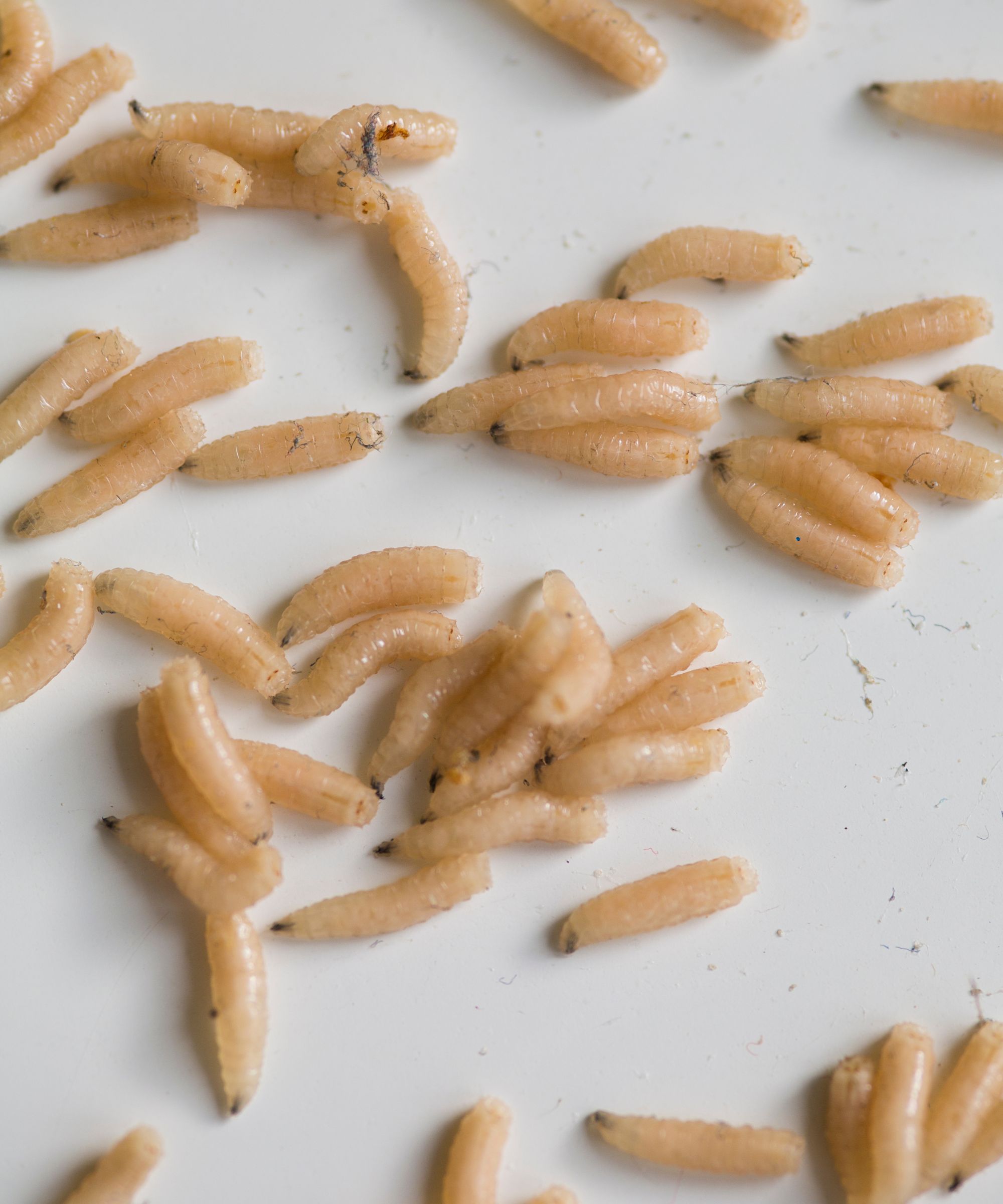
If you're dealing with a particularly bad maggot invasion, it might be time to turn to insecticides.
Georgios Liakopoulos, expert exterminator at Fantastic Pest Control says, 'Specifically designed insecticides and pesticides to kill larvae work well against maggots.' He specifically recommends using permethrin for the job.
He continues, 'Permethrin is an insecticide that works on a variety of pests, including maggots. It's a synthetic chemical that mimics chrysanthemum flowers' insecticidal properties. It works by paralyzing and killing insects by hitting their nervous systems. When using, make sure the area is well-ventilated and always read the instructions. Commercial maggot killers come in sprays and powders. It's easy and effective to get rid of maggots and other pests with these products.
'As permethrin is usually concentrated, you'll have to dilute it according to the manufacturer's instructions. A common dilution ratio is 1% permethrin in water, but make sure you follow the product label's directions. Alternatively, permethrin dog shampoo can be mixed with boiling water in a ratio of one part permethrin to four parts boiling water.'
We recommend the Durvet Permethrin 10% available at Amazon, which is highly rated by shoppers.
Matthew Wilson, pest solutions expert adds, 'The best choice is a product containing either permethrin or pyrethrin as active ingredients since both attack the nervous system of maggots thereby killing them instantly upon contact.'
Wilson also recommends using the Hot Shot Bed Bug Killer available at Amazon, to apply directly onto maggots in abundance, found within refuse sacks, around infested zones, and along stitch lines where they hide most frequently.
'It acts fast, and has prolonged effects that will eventually lead to complete elimination, even if any fly should survive after being sprayed with this chemical compound,' Wilson says. 'Make sure you follow instructions closely, especially within food areas, lest there occurs contamination through misuse.'
FAQs
Can dish soap kill maggots?
As you probably have a bottle of dish soap at home, you're probably wondering if that can also be used to tackle maggots. The short answer is yes, particularly if it contains borax.
It's a less harsh solution than using bleach, and will also leave all surfaces clean and bacteria-free. Just make sure you never use it on these things you shouldn't clean with soap.
Can I vacuum maggots?
If you notice maggots on your upholstery or soft furnishings, you can vacuum them up, but you must empty the vacuum bag immediately afterwards.
You should then follow up by using one of the methods above, or a spray larvicide, before cleaning the upholstery.
Now you know how to kill maggots; the only thing left is to decide which method you use to regain control over your space. Does a pest invasion mean you have a dirty home? Learn whether clean homes get pests.
If you have found maggots in or around your home, it's vital to learn how to kill them instantly to protect your home from these pests, and a growing infestation.
While disgusting, pest experts assure us that maggots are fortunately easy to kill. You can often use natural remedies with items you already have in your home, too, so you won't have to resort to harsher pesticides if you don't want to.
Here, our pest control pros share the six most effective natural methods for killing maggots (and two chemical means for serious cases) to help you get rid of maggots quickly.
What kills maggots?
Lorne Hanewich, corporate trainer at Clark's Termite & Pest Control says, 'Maggots are the larval stage of flies, primarily species like the housefly, blowfly, and fruit fly. Each of these species has its unique preferences for egg-laying locations. For example, blow flies are often attracted to decaying meat, while fruit flies prefer overripe fruits or fermenting organic material.'
It is vital you know how to identify indoor pests and why there are maggots in your house in order to deal with maggots correctly. Lorne adds, 'During this stage, maggots feed intensively on organic material, preparing to develop into adult flies. Typically, maggots are small, white, or cream-colored with soft bodies, move by crawling or wriggling, and worm-like in appearance. Maggots play an essential role in nature, breaking down decaying matter.'

Lorne says, 'If you notice small, white, or pale larvae wriggling around, especially near garbage bins, food waste areas, or pet areas, you likely have a maggot infestation. An unusual increase in adult flies indoors is also a sign, as these flies might have laid eggs that are now hatching. A strong, unpleasant smell often accompanies maggot infestations, especially near decaying material.'
Here is a list of natural products that you most likely already have in your home that are really effective at killing maggots.
1. Boiling water

As simple as it sounds, boiling water is the most impactful way to kill maggots quickly.
Pest control expert Nicholas Martin begins, 'Maggots are actually highly vulnerable to many things. They consist mostly of protein, which makes them most vulnerable to boiling water.' He explains that boiling water causes protein coagulation and kills maggots instantly – and naturally. ‘Don’t forget that maggots can live in cool and warm water, so it must be boiling to kill them,’ he says.
And Martin isn’t the only person who practices this technique. Pest expert Ray Brosnan similarly recommends pouring boiling water over the area where the maggots are gathering to remove them quickly.
Ray says, ‘All you need to do is rinse away the remains afterward; a sprinkling of baking soda over the area is recommended after the scalding to eliminate any bad smells that may linger.'
After cleaning with baking soda, all residue of these maggots should disappear completely. Use an anti-bacterial cleaner to wipe the surfaces they were on for added peace of mind.
CHIANA, PLEASE INCLUDE PRODUCTS N THIS TEXT BOX: BAKING SODA AND ANTI BACTERIAL WIPES
2. Vinegar

There are so many things you can clean with vinegar around your home, and you can use it to kill mold and maggots too – instantly – but only when mixed with boiling water.
Matthew Wilson, pest solutions expert and CEO of Handy Gardeners says, 'Commonly, vinegar is suggested as a maggot killer but it rarely works alone; however, when mixed with boiling water its efficacy increases significantly. To do this you will need one-part vinegar mixed with two parts boiling water. Pour directly onto them or into places like garbage cans, under sinks, or outdoor containers where they are found most often, alongside other affected areas.'
We recommend the number one bestselling 365 by Whole Foods Market Organic White Distilled Vinegar available at Amazon for this, as it is diluted to a 5% acidity, strong enough to kill maggots on contact.
Matthew continues, 'Once boiled, the water kills maggots on contact while vinegar helps to stabilize the environment by making it less hospitable for any future infestations. The mixture kills instantly and also breaks down smells that attract flies, thus preventing re-infestation.'
3. Salt

Cleaning with salt is another tried and tested solution for killing maggots, but it is important to note that it is not as instant as boiling water.
Jason Napolski, pest control expert and owner of A-Tex Pest says, 'Salt is a natural dehydrator that can kill maggots. Pour a generous amount over the maggots and the area they’re in; the salt will dehydrate them and kill them over time. '
Daniel Anderson, pest control and cleaning expert, and CEO of Gorubbishgo adds, 'You can mix one cupful of salt with one gallon of tap water and flush down places such as drains or trash bins where they might have infested. This doesn't just kill them, it also prevents them from hatching new eggs again.'
As salt is an affordable commodity, Anderson recommends using as much as you can to increase efficacy. 'Use lots of salts especially if dealing with heavy infestation because it is cheap,' he says.
All prices correct at time of publication.
4. Lime powder
For an equally organic solution, Anderson recommends using another pantry staple, lime powder, to tackle maggot infestations.
He says, 'Lime powder, also known as calcium hydroxide, can act as a good maggot killer due to its ability to dehydrate them; all one needs do is sprinkle lime over affected areas then leave it like that for some time.'
'As moisture gets absorbed by the lime, it becomes unsuitable for survival by larvae hence causing their death eventually – very useful, especially in open spaces like gardens where these organisms might be found living within the soil or under mulch materials.'
Anderson recommends the Hi-Yield Horticultural Hydrated Lime available at Walmart. 'It works well and doesn't cost too much,' he says. 'Other gardening stores may have similar products available.'
5. Freezing

Matthew Wilson, pest solutions expert says, 'Freezing ranks among the least known yet highly effective methods for killing maggots, especially during small scale outbreaks or objects infested by these larvae like garbage bags, small receptacles, and even organic waste bins.
'This is because once exposed to below zero degrees Celsius temperature range, which could last up until 24 hours. Plus, every single worm present there dies completely without exception since they cannot survive such freezing conditions. This is mostly recommended when boiling may be inappropriate, as it's around food materials, but is still very safe due to the lack of chemicals involved.'
Brett Bennett, director of operations at PURCOR Pest Solutions also recommends this method.
He adds, 'If you have maggots in your trash, then I'd recommend bagging it tight and putting it in a freezer. A chest freezer is ideal for this, but if you need to, bagging smaller portions of trash and putting it in your regular freezer can work as well.
'This might seem gross, but it's really the best way to kill maggots instead of risking them infesting your outdoor garbage receptacles. Freezing can also work for other things around the house maggots might be feeding on.'
Make sure you are careful to organize your chest freezer, to keep maggots and any dirty bags away from food as much as possible. We also recommend double-bagging your trash bag to ensure the infestation is kept secure, using sturdy sacks such as the Hefty Strong Large Trash Bags available at Amazon.
6. Diatomaceous earth

You can use diatomaceous earth as a natural alternative to killing maggots and other pests.
Jeremy Yamaguchi, CEO of Lawn Love shares, 'I have found diatomaceous earth (DE) to be one of the most effective ingredients for getting rid of maggots, whether they are inside your house or outside on your property somewhere.
'DE is a powder made of the ground-up fossils of tiny aquatic creatures. Some products contain a certain percentage of other minerals or substances, but I recommend using the Harris Food Grade Diatomaceous Earth (available at Walmart) because it is 100% pure DE.'
Diatomaceous earth lacks toxicity properties, so it's safe to use anywhere throughout the home assures Matthew Wilson, pest solutions expert.
Matthew adds, 'This substance made from ancient algae works by absorbing fats contained on their outer skin thus leading them into dehydration then death. It takes approximately 24-48 hours depending on how many are present before all die off due to this action taking place over every individual’s body surface area exposed externally to the surrounding environment.
'Food grade DE is safe to use around pets and children, so one can comfortably apply it even in places where kids might come across it, like carpet seams or outdoor bins used for storing waste materials. To achieve better outcomes leave DE undisturbed for some days prior to cleaning up.'
It is however advisable to wear a mask over your nose and mouth to prevent inhalation of the tiny particles as you distribute it.
Chemical approaches to killing maggots
1. Bleach and water mixture

You've probably heard of using bleach to kill mold, but it can also be used to kill maggots. This method is not as natural as the others, but pest control expert, Nicholas Martin, explains that it’s equally as powerful.
He suggests, ‘You can mix bleach 50/50 with water and pour it onto maggots to kill them quickly,’ he says. ‘If the maggots are in your trash can, you can also close it after pouring bleach inside to kill those maggots that are not covered with the liquid with toxic bleach fumes.’
You can use any traditional cleaning bleach– we recommend the Great-Value Low Splash Bleach available at Walmart, as it's popular with shoppers, and kills 99.9% of germs.
We recommend using this method outside as much as possible or opening windows and doors to ventilate the area to protect your airways from irritation.
2. Use insecticides

If you're dealing with a particularly bad maggot invasion, it might be time to turn to insecticides.
Georgios Liakopoulos, expert exterminator at Fantastic Pest Control says, 'Specifically designed insecticides and pesticides to kill larvae work well against maggots.' He specifically recommends using permethrin for the job.
He continues, 'Permethrin is an insecticide that works on a variety of pests, including maggots. It's a synthetic chemical that mimics chrysanthemum flowers' insecticidal properties. It works by paralyzing and killing insects by hitting their nervous systems. When using, make sure the area is well-ventilated and always read the instructions. Commercial maggot killers come in sprays and powders. It's easy and effective to get rid of maggots and other pests with these products.
'As permethrin is usually concentrated, you'll have to dilute it according to the manufacturer's instructions. A common dilution ratio is 1% permethrin in water, but make sure you follow the product label's directions. Alternatively, permethrin dog shampoo can be mixed with boiling water in a ratio of one part permethrin to four parts boiling water.'
We recommend the Durvet Permethrin 10% available at Amazon, which is highly rated by shoppers.
Matthew Wilson, pest solutions expert adds, 'The best choice is a product containing either permethrin or pyrethrin as active ingredients since both attack the nervous system of maggots thereby killing them instantly upon contact.'
Wilson also recommends using the Hot Shot Bed Bug Killer available at Amazon, to apply directly onto maggots in abundance, found within refuse sacks, around infested zones, and along stitch lines where they hide most frequently.
'It acts fast, and has prolonged effects that will eventually lead to complete elimination, even if any fly should survive after being sprayed with this chemical compound,' Wilson says. 'Make sure you follow instructions closely, especially within food areas, lest there occurs contamination through misuse.'
FAQs
Can dish soap kill maggots?
As you probably have a bottle of dish soap at home, you're probably wondering if that can also be used to tackle maggots. The short answer is yes, particularly if it contains borax.
It's a less harsh solution than using bleach, and will also leave all surfaces clean and bacteria-free. Just make sure you never use it on these things you shouldn't clean with soap.
Can I vacuum maggots?
If you notice maggots on your upholstery or soft furnishings, you can vacuum them up, but you must empty the vacuum bag immediately afterwards.
You should then follow up by using one of the methods above, or a spray larvicide, before cleaning the upholstery.
Now you know how to kill maggots; the only thing left is to decide which method you use to regain control over your space. Does a pest invasion mean you have a dirty home? Learn whether clean homes get pests.
If you have found maggots in or around your home, it's vital to learn how to kill them instantly to protect your home from these pests, and a growing infestation.
While disgusting, pest experts assure us that maggots are fortunately easy to kill. You can often use natural remedies with items you already have in your home, too, so you won't have to resort to harsher pesticides if you don't want to.
Here, our pest control pros share the six most effective natural methods for killing maggots (and two chemical means for serious cases) to help you get rid of maggots quickly.
What kills maggots?
Lorne Hanewich, corporate trainer at Clark's Termite & Pest Control says, 'Maggots are the larval stage of flies, primarily species like the housefly, blowfly, and fruit fly. Each of these species has its unique preferences for egg-laying locations. For example, blow flies are often attracted to decaying meat, while fruit flies prefer overripe fruits or fermenting organic material.'
It is vital you know how to identify indoor pests and why there are maggots in your house in order to deal with maggots correctly. Lorne adds, 'During this stage, maggots feed intensively on organic material, preparing to develop into adult flies. Typically, maggots are small, white, or cream-colored with soft bodies, move by crawling or wriggling, and worm-like in appearance. Maggots play an essential role in nature, breaking down decaying matter.'

Lorne says, 'If you notice small, white, or pale larvae wriggling around, especially near garbage bins, food waste areas, or pet areas, you likely have a maggot infestation. An unusual increase in adult flies indoors is also a sign, as these flies might have laid eggs that are now hatching. A strong, unpleasant smell often accompanies maggot infestations, especially near decaying material.'
Here is a list of natural products that you most likely already have in your home that are really effective at killing maggots.
1. Boiling water

As simple as it sounds, boiling water is the most impactful way to kill maggots quickly.
Pest control expert Nicholas Martin begins, 'Maggots are actually highly vulnerable to many things. They consist mostly of protein, which makes them most vulnerable to boiling water.' He explains that boiling water causes protein coagulation and kills maggots instantly – and naturally. ‘Don’t forget that maggots can live in cool and warm water, so it must be boiling to kill them,’ he says.
And Martin isn’t the only person who practices this technique. Pest expert Ray Brosnan similarly recommends pouring boiling water over the area where the maggots are gathering to remove them quickly.
Ray says, ‘All you need to do is rinse away the remains afterward; a sprinkling of baking soda over the area is recommended after the scalding to eliminate any bad smells that may linger.'
After cleaning with baking soda, all residue of these maggots should disappear completely. Use an anti-bacterial cleaner to wipe the surfaces they were on for added peace of mind.
CHIANA, PLEASE INCLUDE PRODUCTS N THIS TEXT BOX: BAKING SODA AND ANTI BACTERIAL WIPES
2. Vinegar

There are so many things you can clean with vinegar around your home, and you can use it to kill mold and maggots too – instantly – but only when mixed with boiling water.
Matthew Wilson, pest solutions expert and CEO of Handy Gardeners says, 'Commonly, vinegar is suggested as a maggot killer but it rarely works alone; however, when mixed with boiling water its efficacy increases significantly. To do this you will need one-part vinegar mixed with two parts boiling water. Pour directly onto them or into places like garbage cans, under sinks, or outdoor containers where they are found most often, alongside other affected areas.'
We recommend the number one bestselling 365 by Whole Foods Market Organic White Distilled Vinegar available at Amazon for this, as it is diluted to a 5% acidity, strong enough to kill maggots on contact.
Matthew continues, 'Once boiled, the water kills maggots on contact while vinegar helps to stabilize the environment by making it less hospitable for any future infestations. The mixture kills instantly and also breaks down smells that attract flies, thus preventing re-infestation.'
3. Salt

Cleaning with salt is another tried and tested solution for killing maggots, but it is important to note that it is not as instant as boiling water.
Jason Napolski, pest control expert and owner of A-Tex Pest says, 'Salt is a natural dehydrator that can kill maggots. Pour a generous amount over the maggots and the area they’re in; the salt will dehydrate them and kill them over time. '
Daniel Anderson, pest control and cleaning expert, and CEO of Gorubbishgo adds, 'You can mix one cupful of salt with one gallon of tap water and flush down places such as drains or trash bins where they might have infested. This doesn't just kill them, it also prevents them from hatching new eggs again.'
As salt is an affordable commodity, Anderson recommends using as much as you can to increase efficacy. 'Use lots of salts especially if dealing with heavy infestation because it is cheap,' he says.
All prices correct at time of publication.
4. Lime powder
For an equally organic solution, Anderson recommends using another pantry staple, lime powder, to tackle maggot infestations.
He says, 'Lime powder, also known as calcium hydroxide, can act as a good maggot killer due to its ability to dehydrate them; all one needs do is sprinkle lime over affected areas then leave it like that for some time.'
'As moisture gets absorbed by the lime, it becomes unsuitable for survival by larvae hence causing their death eventually – very useful, especially in open spaces like gardens where these organisms might be found living within the soil or under mulch materials.'
Anderson recommends the Hi-Yield Horticultural Hydrated Lime available at Walmart. 'It works well and doesn't cost too much,' he says. 'Other gardening stores may have similar products available.'
5. Freezing

Matthew Wilson, pest solutions expert says, 'Freezing ranks among the least known yet highly effective methods for killing maggots, especially during small scale outbreaks or objects infested by these larvae like garbage bags, small receptacles, and even organic waste bins.
'This is because once exposed to below zero degrees Celsius temperature range, which could last up until 24 hours. Plus, every single worm present there dies completely without exception since they cannot survive such freezing conditions. This is mostly recommended when boiling may be inappropriate, as it's around food materials, but is still very safe due to the lack of chemicals involved.'
Brett Bennett, director of operations at PURCOR Pest Solutions also recommends this method.
He adds, 'If you have maggots in your trash, then I'd recommend bagging it tight and putting it in a freezer. A chest freezer is ideal for this, but if you need to, bagging smaller portions of trash and putting it in your regular freezer can work as well.
'This might seem gross, but it's really the best way to kill maggots instead of risking them infesting your outdoor garbage receptacles. Freezing can also work for other things around the house maggots might be feeding on.'
Make sure you are careful to organize your chest freezer, to keep maggots and any dirty bags away from food as much as possible. We also recommend double-bagging your trash bag to ensure the infestation is kept secure, using sturdy sacks such as the Hefty Strong Large Trash Bags available at Amazon.
6. Diatomaceous earth

You can use diatomaceous earth as a natural alternative to killing maggots and other pests.
Jeremy Yamaguchi, CEO of Lawn Love shares, 'I have found diatomaceous earth (DE) to be one of the most effective ingredients for getting rid of maggots, whether they are inside your house or outside on your property somewhere.
'DE is a powder made of the ground-up fossils of tiny aquatic creatures. Some products contain a certain percentage of other minerals or substances, but I recommend using the Harris Food Grade Diatomaceous Earth (available at Walmart) because it is 100% pure DE.'
Diatomaceous earth lacks toxicity properties, so it's safe to use anywhere throughout the home assures Matthew Wilson, pest solutions expert.
Matthew adds, 'This substance made from ancient algae works by absorbing fats contained on their outer skin thus leading them into dehydration then death. It takes approximately 24-48 hours depending on how many are present before all die off due to this action taking place over every individual’s body surface area exposed externally to the surrounding environment.
'Food grade DE is safe to use around pets and children, so one can comfortably apply it even in places where kids might come across it, like carpet seams or outdoor bins used for storing waste materials. To achieve better outcomes leave DE undisturbed for some days prior to cleaning up.'
It is however advisable to wear a mask over your nose and mouth to prevent inhalation of the tiny particles as you distribute it.
Chemical approaches to killing maggots
1. Bleach and water mixture

You've probably heard of using bleach to kill mold, but it can also be used to kill maggots. This method is not as natural as the others, but pest control expert, Nicholas Martin, explains that it’s equally as powerful.
He suggests, ‘You can mix bleach 50/50 with water and pour it onto maggots to kill them quickly,’ he says. ‘If the maggots are in your trash can, you can also close it after pouring bleach inside to kill those maggots that are not covered with the liquid with toxic bleach fumes.’
You can use any traditional cleaning bleach– we recommend the Great-Value Low Splash Bleach available at Walmart, as it's popular with shoppers, and kills 99.9% of germs.
We recommend using this method outside as much as possible or opening windows and doors to ventilate the area to protect your airways from irritation.
2. Use insecticides

If you're dealing with a particularly bad maggot invasion, it might be time to turn to insecticides.
Georgios Liakopoulos, expert exterminator at Fantastic Pest Control says, 'Specifically designed insecticides and pesticides to kill larvae work well against maggots.' He specifically recommends using permethrin for the job.
He continues, 'Permethrin is an insecticide that works on a variety of pests, including maggots. It's a synthetic chemical that mimics chrysanthemum flowers' insecticidal properties. It works by paralyzing and killing insects by hitting their nervous systems. When using, make sure the area is well-ventilated and always read the instructions. Commercial maggot killers come in sprays and powders. It's easy and effective to get rid of maggots and other pests with these products.
'As permethrin is usually concentrated, you'll have to dilute it according to the manufacturer's instructions. A common dilution ratio is 1% permethrin in water, but make sure you follow the product label's directions. Alternatively, permethrin dog shampoo can be mixed with boiling water in a ratio of one part permethrin to four parts boiling water.'
We recommend the Durvet Permethrin 10% available at Amazon, which is highly rated by shoppers.
Matthew Wilson, pest solutions expert adds, 'The best choice is a product containing either permethrin or pyrethrin as active ingredients since both attack the nervous system of maggots thereby killing them instantly upon contact.'
Wilson also recommends using the Hot Shot Bed Bug Killer available at Amazon, to apply directly onto maggots in abundance, found within refuse sacks, around infested zones, and along stitch lines where they hide most frequently.
'It acts fast, and has prolonged effects that will eventually lead to complete elimination, even if any fly should survive after being sprayed with this chemical compound,' Wilson says. 'Make sure you follow instructions closely, especially within food areas, lest there occurs contamination through misuse.'
FAQs
Can dish soap kill maggots?
As you probably have a bottle of dish soap at home, you're probably wondering if that can also be used to tackle maggots. The short answer is yes, particularly if it contains borax.
It's a less harsh solution than using bleach, and will also leave all surfaces clean and bacteria-free. Just make sure you never use it on these things you shouldn't clean with soap.
Can I vacuum maggots?
If you notice maggots on your upholstery or soft furnishings, you can vacuum them up, but you must empty the vacuum bag immediately afterwards.
You should then follow up by using one of the methods above, or a spray larvicide, before cleaning the upholstery.
Now you know how to kill maggots; the only thing left is to decide which method you use to regain control over your space. Does a pest invasion mean you have a dirty home? Learn whether clean homes get pests.

Ottilie joined Homes & Gardens in 2024 as the News Writer on Solved, after finishing a Master's in Magazine Journalism at City, University of London. Now, as the Sleep Editor, she spends her days hunting deals and producing content on all things sleep – from mattresses and sheets to protectors and pillows, all of which she tests in her own home. She also has particular expertise in home fragrance, covering everything from candles to reed diffusers.
Previously, she has written for Livingetc and Motorsport Magazine, and also has a Master's degree in English Literature and History of Art from the University of Edinburgh, where she developed a love for inspiring interiors and architecture.
- Chiana DicksonContent Editor
